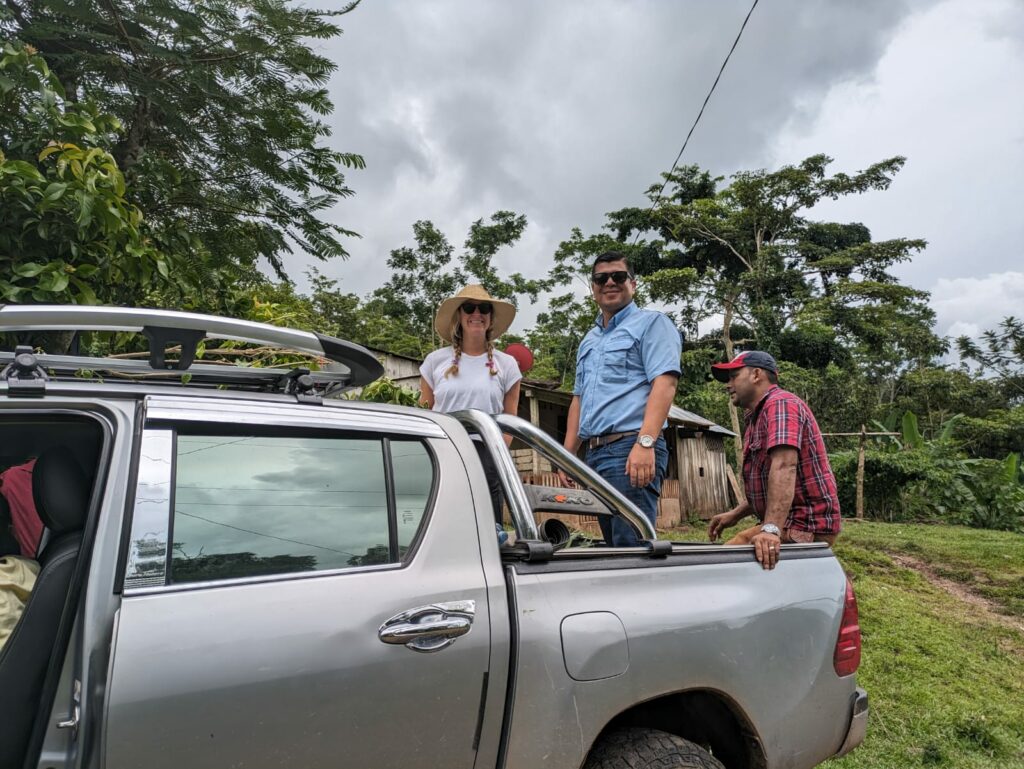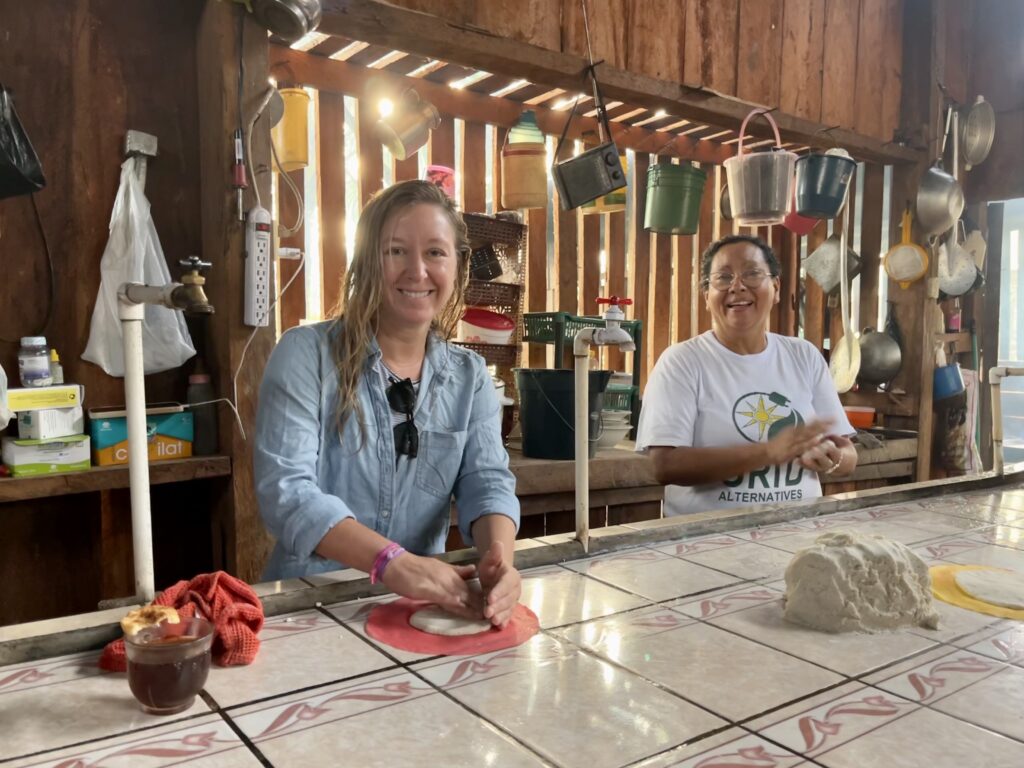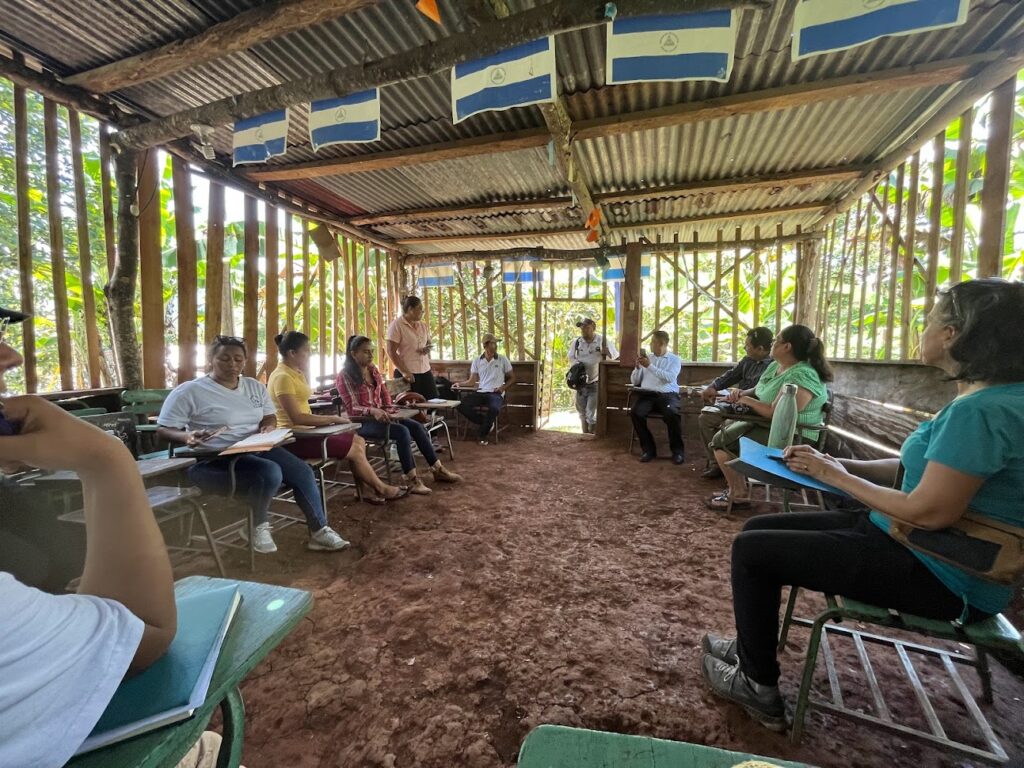Transforming Rural Nicaragua with Project Schoolhouse
Hi y’all! I’m Sara, and I have the privilege of serving as the organization’s President of the Board of Directors. I’ve been a longtime supporter of Project Schoolhouse, and formally joined as a board member in 2019. I had the chance to visit rural Nicaragua for the first time in September, and wanted to share my perspective from the recent trip!

Stepping off the plane, I was greeted with warm smiles and open arms by the passionate members of Project Schoolhouse’s Nicaragua team and our Austin-based Executive Director. The team’s dedication to the cause was palpable, and it was clear from the outset that this was a group of individuals committed to making a tangible difference in the lives of those they served.
Over the course of our trip, we visited about ten pipeline communities in the Rio Blanco region, each with its own unique story and set of challenges. These were places where clean water, proper sanitation, and quality education were not just luxuries, but pressing necessities for survival and prosperity.
We ventured from the town of Rio Blanco by truck to each of the rural communities over the course of three days. This included an overnight stay in Bilami, where a family of an active project graciously housed and fed our 6 person travel team on their large “finca” (farm, in Spanish).

In these communities, I had the privilege of meeting families who had spent generations without access to clean water, relying on contaminated sources that jeopardized their health and well-being. The children’s bright eyes and hopeful smiles, juxtaposed against the backdrop of their dilapidated schools, served as a powerful reminder of the urgent need for change.
In each of the communities, our team arrived with the promise to listen to voiced needs from the group of community representatives. Each representative’s pitch was individual, and they spoke of daily challenges unique to their local best-alternatives to clean water. While each conversation called out the challenges of the school and water infrastructure specific to that location, the themes and underlying root causes were 100% consistent: lack of access to clean water, sanitation systems, and suitable learning environments for the community’s children.
Over three intense days, our team navigated through the rugged terrain in off-road vehicles, weaving our way through the breathtaking landscapes. We were met with open arms and warm hearts, welcomed by a community united in their desire for a better future. In the faces of the thousands we met, we saw hope, and we understood the weight of the challenges they faced.

Project Schoolhouse, driven by a vision of empowerment and sustainable development, has already made significant strides in similar communities since it was first founded 16 years ago. In this trip I was able to witness that when the Nica team first meets with community leaders, team members such as Maria Inés (Project Coordinator), Manuel (Construction Manager), and Norma (Programs Coordinator), they take the time to accurately set expectations about what’s required of the beneficiaries. For example, while Project Schoolhouse brings the project management, materials, and construction expertise, the labor is donated by the community members. And in order for projects to be successful, community leaders are responsible for standing up a board to lead their neighbors through each step of the journey, and post-delivery. We have found that this level of ownership is critical to a successful project, and ensures the right level of knowledge and ownership of schools and water system maintenance long term.
Through this work, the Project Schoolhouse team and many supporters have seen firsthand the impact of clean water systems, providing families with a newfound sense of security and health. Sanitation systems had been implemented, transforming lives by preventing waterborne diseases and improving overall quality of life.
The schools, once mere shells of educational institutions, are now vibrant centers of learning. Renovated classrooms, equipped with necessities such as watertight roofing, flooring, and access to potable water for children throughout the day, promised a brighter future for the children who would one day lead these communities forward.
As our trip concluded, I couldn’t help but feel a renewed sense of purpose and determination. The annual fundraiser, Cien Amigos which translates to “100 Friends” in Spanish, loomed on the horizon, and I knew that the success of this event would be instrumental in continuing the momentum we had built.
In 2024, Project Schoolhouse aims to fund 2-3 projects that will further transform the lives of communities in rural Nicaragua. These projects will not only provide the basic necessities of clean water, sanitation, and education, but they will also pave the way for sustainable growth and self-reliance.
My journey with Project Schoolhouse in rural Nicaragua was a testament to the boundless potential of human compassion and dedication. Through concerted efforts and unwavering belief in the possibility of change, we can create a world where every individual has access to the most fundamental human rights: clean water, sanitation, and quality education.
As the date of Cien Amigos approaches, I invite you to join us in this noble endeavor. Together, we can be the driving force behind transformation, ensuring that more communities in Nicaragua and beyond have the opportunity to thrive.
For more details, go to the Cien Amigos Event Page!
